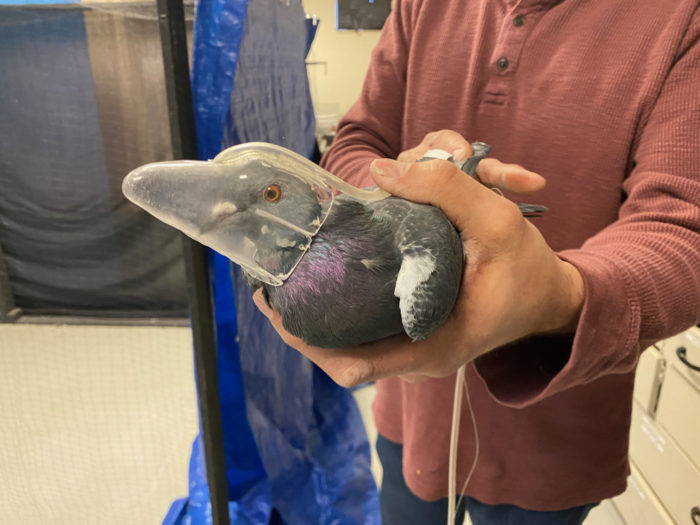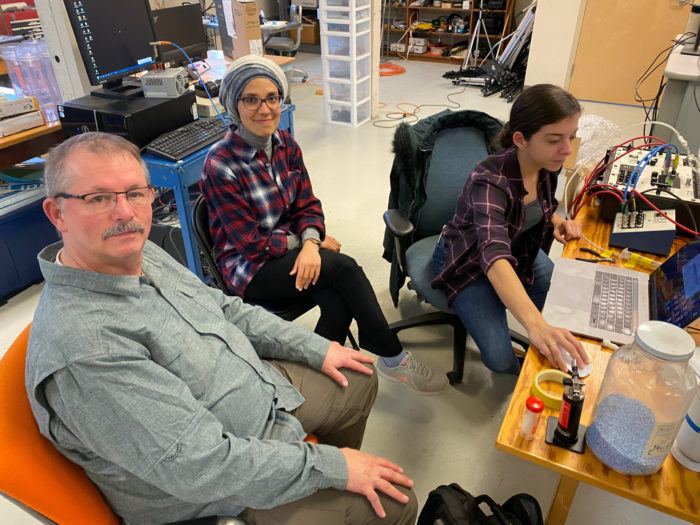The Powers Lab began work on a study of keel bone damage in laying hens in collaboration with a research group headed by Dr. Alexandra Harlander at Guelph University. The research group will also involve long time collaborator Bret Tobalske at the University of Montana. The core goal of the project will be to understand what aspects of communal housing lead to injury and mortality rates higher than for caged hens. Of specific interest will be damage to the keel bone, especially fractures, that are known to be quite painful. Susceptibility to skeletal injury is like a consequence of selection for high egg project. The increasing demand for cage-free eggs by consumers has heightened the need to understand the best ways to provide enriched environments for hens that minimize risk of injury.
The Powers Lab will oversee experiments designed to assess the energetic cost of keel bone injury to the hens. This will include measurement of both resting and active metabolic rates, including metabolic rate during short-term flights. We will also measure daily energy expenditure using doubly labeled water. Our work on the project officially started on December 11 when Don traveled to the University of Montana to train Dr. Neila Ben Sassi, a postdoc on the project, and graduate student Renee Garant on open-flow respirometry and blood sample collection for doubly labeled water. While in Montana we used rock pigeons for the training sessions since Bret had already trained them to wear the respirometry mask needed for some measurements.


Once things get into full swing Don and possible one of the undergraduate researchers will likely make a trip to Guelph mid-summer to help with the work.







